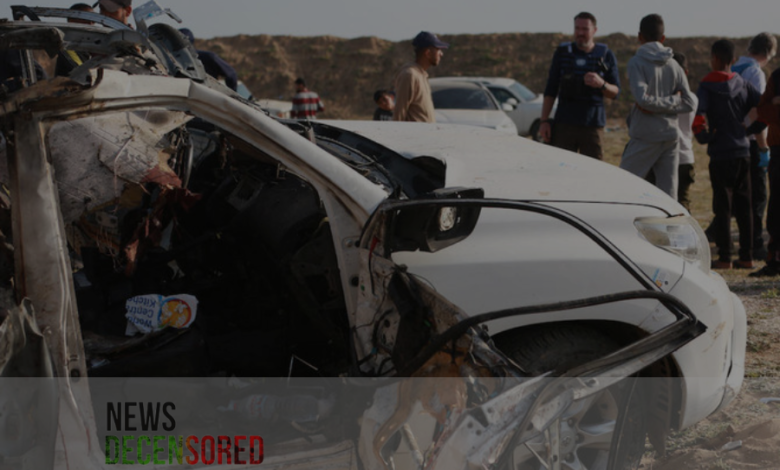Australia says Israel did not deliberately kill foreign aid workers in Gaza

The Australian government claimed in its most recent statements that Israel had no clear policy to attack foreign aid workers during the Gaza conflict deliberately ; this issue has sparked debate, forming a continuous series of hostilities with broader implications for international relations and humanitarian efforts.
The assertion comes amidst reports of casualties among foreign aid workers working in Gaza; in dispensing relief and offering support to civilians affected by the conflict as it is essential to protect the staff , especially since their role in providing aid, medical services, and other assistance to the concerned people is vital.
For its part, the government of Israel has repeatedly described its military attacks against Gaza as being targeted against organizations that it perceives to be terrorist groups and, to avoid civilian casualties, asserts that it takes all precautions.
Despite this, given the density of the population in Gaza, these wars predictably cause civilian killings, even when trying to prevent them. Indeed, the nature of the warfare and the proximity between civilian and military targets within a city, taken together, inherently complicates enforcement under international humanitarian law.
This attitude of Australia mirrors, more generally, its broader diplomatic and strategic relationship with Israel. Being one of the key allies and friends, Australia has many instances where it has become a supporter, particularly in foreign policy.
The Israeli attacks on Gaza that have killed hundreds of civilians, including nationals of several countries, highlight the broader humanitarian challenges arising out of the conflict. International aid workers toil under very difficult and, at times, life-threatening circumstances to provide vital services amid the rigors of an active conflict zone. The safety of the workers is thus very much of concern to the international community, relying on their efforts to attend to humanitarian needs arising from the conflict.
The statement of the Australian government has received mixed responses. A few international organizations and advocacy groups have been very skeptical, saying that besides the good intentions, it is tough to give accurate information and verify claims of this nature in the middle of active conflict. Whatever the intent, the figures of aid workers’ casualties raise a question of serious systemic problems in how military operations are conducted and how humanitarian staff are protected.
For Israel, this claim of not intentionally targeting anything is an assertion well-entrenched within the broader defense against any charges of violations of international law. The State of Israel has been at the helm of international scrutiny regarding its military attacks on Gaza, with many stakeholders demanding investigations into the purported violation of international humanitarian law and urging means to protect civilians and aid workers better.
The international community continues to call for transparency, accountability, and adherence to international humanitarian law and practice because the protection of humanitarian workers and civilian populations is part of ensuring conflict resolution and peacebuilding.
In summary, Australia’s stance that Israel did not deliberately target foreign aid workers in Gaza exemplifies the intricacies of international diplomacy and the challenges involved in analyzing actions during the conflict.




